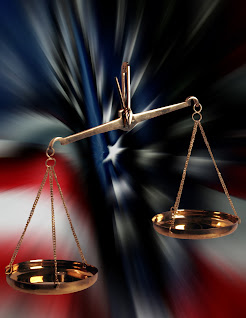DOMINO'S PIZZA, INC. v. MCDONALD
The U.S. Supreme Court addressed the issue presented in Domino’s Pizza, Inc. v. McDonald when it ruled as follows:
Since [the single-shareholder corporation] settled its claims and is not involved in this case, we have no occasion to determine whether, as a corporation, it could have brought suit under §1981. We note, however, that the Courts of Appeals to have considered the issue have concluded that corporations may raise § 1981 claims.
Domino’s Pizza, Inc. v. McDonald, 546 U.S. 470, n. 1, 126 S.Ct. 1246, 163 L.Ed.2d 1069 (2006) (referencing, e.g., Hudson Valley Freedom Theater, Inc. v. Heimbach, 671 F.2d 702, 706 (C.A.2 1982)) (emphasis added).
In various statutory contexts, several circuits have concluded that
corporations have standing to assert race discrimination claims.
See, e.g., Thinket Ink Info. Res., Inc. v. Sun Microsystems, Inc., 368 F.3d 1053, 1060 (9th Cir. 2004) (Section 1981 claim);
Oti Kaga, Inc. v. S.D. Hous. Dev. Auth., 342 F.3d 871, 882 (8th Cir. 2003) (Fair Housing Act claims);
Guides, Ltd. v. Yarmouth Grp. Prop. Mgmt., Inc., 295 F.3d 1065, 1072 (10th Cir. 2002) (Sections 1981 and 1982 claims);
Gersman v. Group Health Ass’n, 931 F.2d 1565, 1568, 289 U.S. App. D.C. 332 (D.C. Cir. 1991) (Section 1981 claim),
vacated on other grounds, 502 U.S. 1068, 112 S.Ct. 960, 117 L.Ed.2d 127 (1992);
Triad Assocs., Inc. v. Chi. Hous. Auth., 892 F.2d 583, 591 (7th Cir. 1989) (Section 1983 claim),
abrogated on other grounds, Bd. of Cnty. Comm’rs v. Umbehr, 518 U.S. 668, 116 S.Ct. 2342, 135 L.Ed.2d 843 (1996);
Hudson Valley Freedom Theater, Inc. v. Heimbach, 671 F.2d 702, 706 (2d Cir. 1982) (Title VI claim);
Des Vergnes v. Seekonk Water Dist., 601 F.2d 9, 13-14 (1st Cir. 1979) (Section 1981 claim).
THE NINTH CIRCUIT
Particularly, the
Ninth Circuit has found, “When a
corporation has acquired a racial identity, either as a matter of law
or by imputation, then it can be the direct target of discrimination and has standing to pursue a claim under
§ 1981.”
Thinket Ink Information Resources, Inc. v. Sun Microsystems, Inc., 368 F.3d 1053, 1059 (9th Cir. 2004) (emphasis added) (hyperlinks added to original).
THE PLAIN LANGUAGE OF THE STATUTE
Further, it appears that the plain language of the statute may allow a
corporation to have standing. The relevant statute is entitled “Equal rights under the law” and it states as follows:
(a) Statement of Equal Rights
All persons within the jurisdiction of the United States shall have the same right in every State and Territory to make and enforce contracts, to sue, be parties, give evidence, and to the full and equal benefit of all laws and proceedings for the security of persons and property as is enjoyed by white citizens, and shall be subject to like punishment, pains, penalties, taxes, licenses, and exactions of every kind, and to no other.
(b) “Make and Enforce Contracts" Defined
For purposes of this section, the term “make and enforce contracts” includes the making, performance, modification, and termination of contracts, and the enjoyment of all benefits, privileges, terms, and conditions of the contractual relationship.
(c) Protection Against Impairment
The rights protected by this section are protected against impairment by nongovernmental discrimination and impairment under color of State law.
42 U.S.C. § 1981 (emphasis added). Note that the statute uses the term "person," not "corporation," and it is undefined.
Federal courts have found that the plain language of a statute may allow a corporation to have standing when not specifically included by definition.
For example, the court in
Carnell Constr. Corp. v. Danville Redevelopment & Hous. Auth. found that although
Title VI does not specifically define the term “person,” the
Dictionary Act does: “In determining the meaning of any Act of Congress, unless the context indicates otherwise,” the word person” include[s] corporations.”
Carnell Constr. Corp. v. Danville Redevelopment & Hous. Auth., 745 F.3d 703, n. 4 (4th Cir. 2014) (
citing 1 U.S.C. § 1).
Moreover,
§ 2000d prohibits a “person” from being discriminated against “on the ground of race, color, or national origin, “not” on the ground of
his or her race, color, or national origin.”
Id. (
see Hudson Valley Freedom Theater, Inc. v. Heimbach, 671 F.2d 702, 705 (2d Cir. 1982) (observing the same) (emphasis added);
see also Mohamad v. Palestinian Auth., 132 S.Ct. 1702, 1707-08, 182 L.Ed.2d 720 (2012) (observing that Congress often uses the word “individual” to mean something different from its use of the word “person” )).
CONCLUSION
Learn More
–gw








